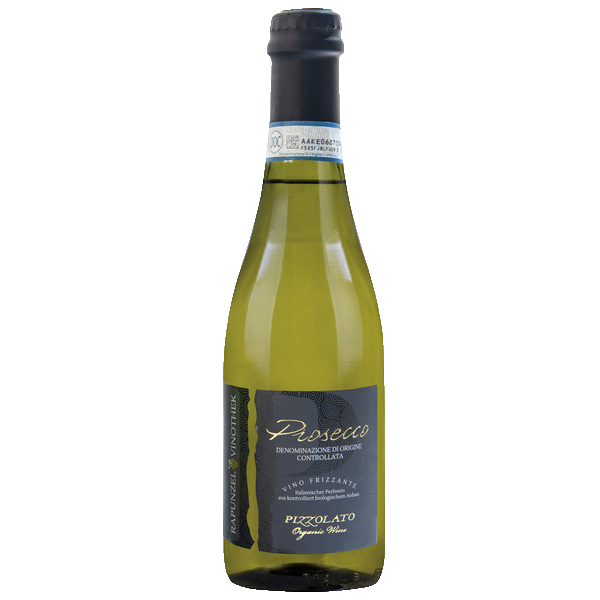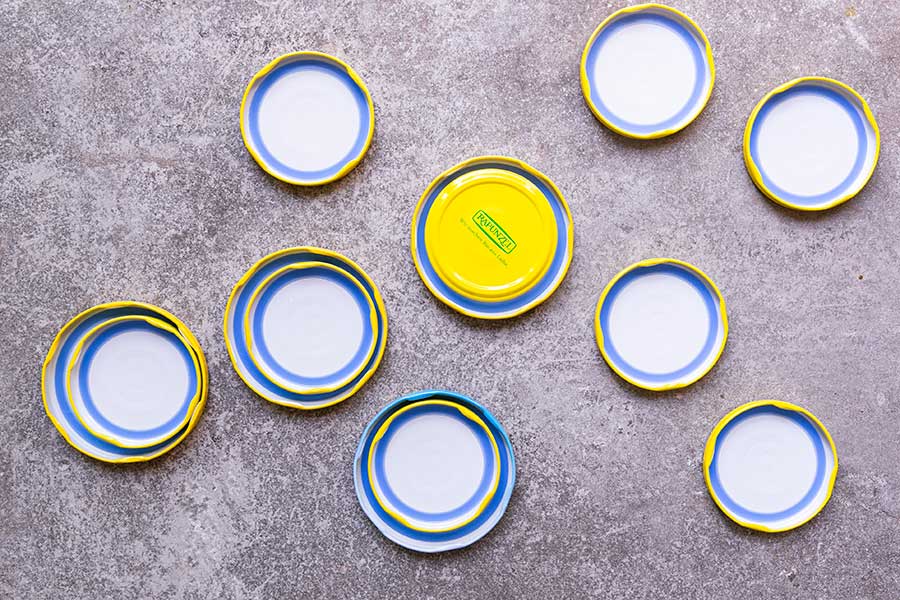Bouquet: subtle floral aroma / Flavor: sparkly, fruity. This Prosecco with its easy-drinking appeal and its vibrant character is produced in the Treviso region that is part of the declared Prosecco D.O.C. region. Indication or origin: 'Denominazione di Origine Controllato'. Enjoy refrigerated.
Ingredients
grapes*, concentrated grape must*, acidity regulators tartaric acid (L(+)-), citric acid*, preservative SULFITES
* = ingredients from organic farming
** = from biodynamic agriculture
grapes*, concentrated grape must*, acidity regulators tartaric acid (L(+)-), citric acid*, preservative SULFITES
* = ingredients from organic farming
** = from biodynamic agriculture
Characteristics
sparkling-fruity
Usage
trendy aperitifs, enjoy refrigerated
sparkling-fruity
Usage
trendy aperitifs, enjoy refrigerated
Additional information
Preparation
After the harvest, the ripe grapes are washed and crushed. The resulting mash is separated from the spent grapes and fermented with special wine yeast. In the next steps, a small dose of sulphite is added to the mash, the mash is clarified and filtered and the young wine is stored. At the end of the storage time, the wine is filtered once again. For the filtration siliceous earth is used, bentonite is used for the clarification process. The wine is bottled with the addition of carbonic acid from the fermentation process. The maximum shelf life of the wine is 4 years due to the consciously low degree of sulfurization.
Produced in
Italy
Country of origin
italian agriculture
Origin of the main ingredients
Italy
Quality
EU Bio-Logo
Storage advice
Please store in a cool place.
Legal name of the food product
Italian sparkling wine
| Calorific value | 268 kJ / 64 kcal | |
| Fat | 0,00 g | |
| of which saturates | 0,00 g | |
| Carbohydrates | 1,50 g | |
| Sugar | 0,90 g | |
| Dietary fiber | 0,0 g | |
| Protein | 0,00 g | |
| Salt | 0,000 g |
Allergens
| Eggs and products thereof | not contained | |
| Peanuts and products thereof | not contained | |
| Fish and products thereof | not contained | |
| Cereals containing gluten or cereal products | not contained | |
| Crustaceans and products thereof | not contained | |
| Milk and products thereof including lactose | not contained | |
| Lupins and products thereof | not contained | |
| Nuts and products thereof | not contained | |
| Celery and products thereof | not contained | |
| Mustard and products thereof | not contained | |
| Sesame seeds and products thereof | not contained | |
| Soy and products thereof | not contained | |
| Sulfur dioxide or sulfites (more than 10mg/kg or 10 mg/l SO2) |
ja | |
| Molluscs and products thereof | not contained |
Mit großer Sorgfalt pflegen wir unsere Online-Produktdatenbank. Dennoch können wir vereinzelte Fehler nicht ausschließen. Daher bitten wir Sie, diese Angaben immer mit dem Etikett des jeweiligen Produktes zu vergleichen. Sollten Ihnen Unstimmigkeiten auffallen, sind wir dankbar für einen Hinweis an kundenservice@rapunzel.de.
FAQ about Prosecco Vino Frizzante DOC
Rapunzel wines are vegan and are filtered with the help of diatomaceous earth.
Diatomaceous earth is a whitish powder/rock consisting mainly of the silica shells of fossil diatoms.
mehr erfahren
mehr erfahren
There is no such thing as a completely sulphur-free wine by nature, as microorganisms release sulphur dioxide in the course of alcoholic fermentation. The additional use of sulphur is as old as wine production itself. It was already used by the Greeks and Romans to disinfect and preserve their vessels and wines.
Thus, even today, sulphur dioxide is used in wine production for stabilisation. It inhibits microorganisms, such as yeasts and bacteria, and prevents wine from changing flavour in contact with atmospheric oxygen. Wines to which no sulphur has been added can only be kept for a few months.
As a matter of principle, organically managed wineries strive for the lowest possible use of sulphur dioxide. Healthy grapes, gentle processing and careful ageing help and strengthen the inner balance of the wines. We have all our Rapunzel wines analysed for their sulphur dioxide content, which is between 20 - 80 mg/l.
As a rule of thumb:
Organic wines usually contain less sulphur than conventional wines
Red wines contain less sulphur than white wines
Dry wines contain less sulphur than sweet wines
mehr erfahren
mehr erfahren
Recipes with Prosecco Vino Frizzante DOC

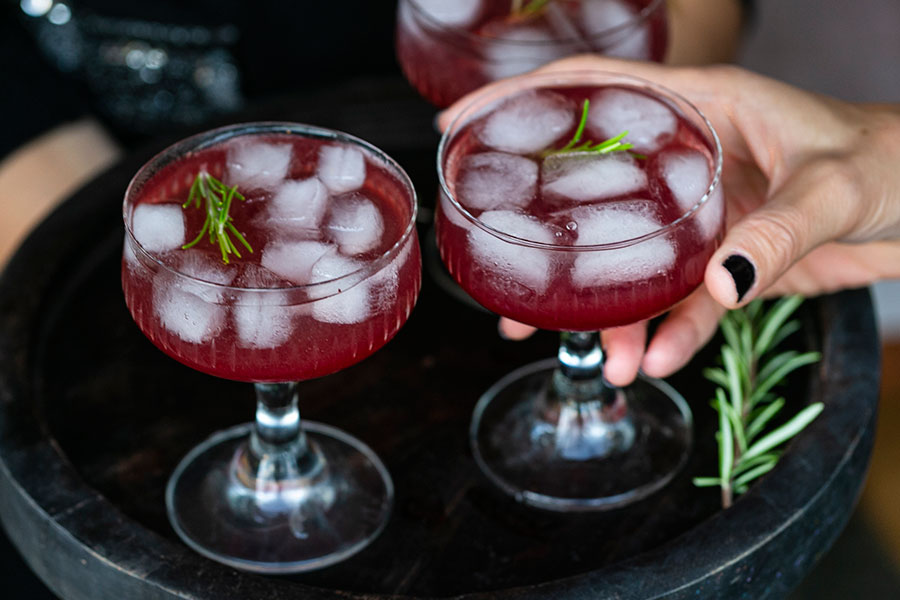
Berries drink

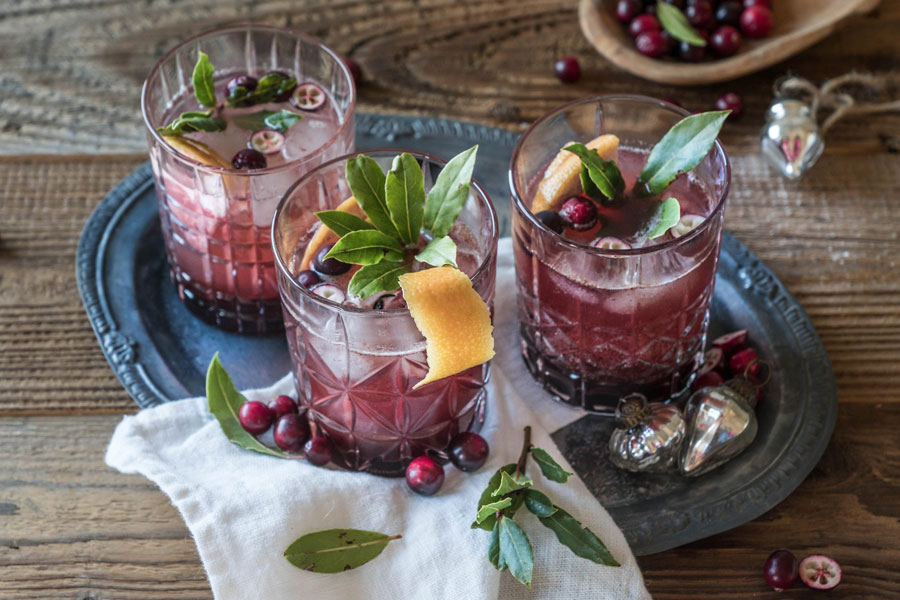
Cranberry spritz with bay leaf


Prosecco Cocktail with Raspberry and Rosemary

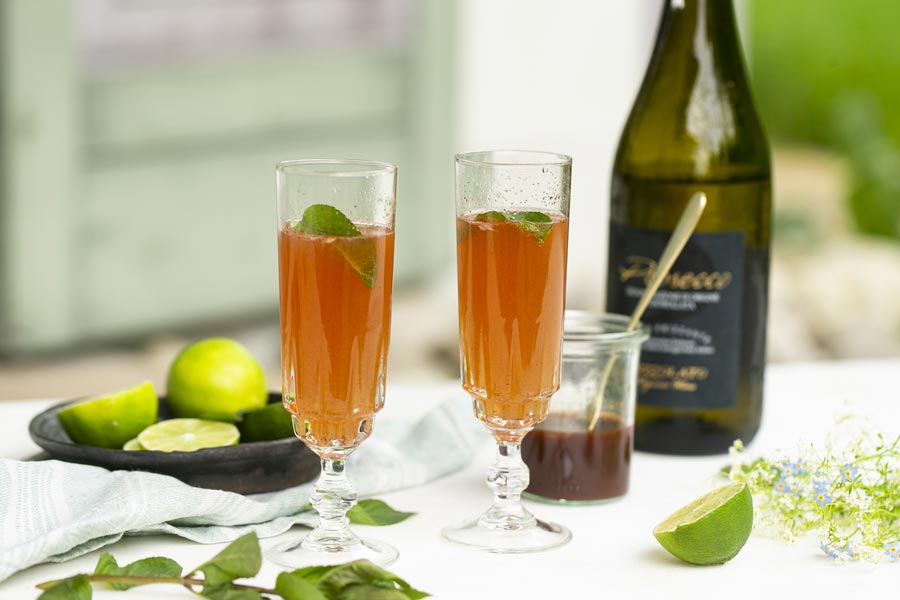
Cocktail with date and lime

